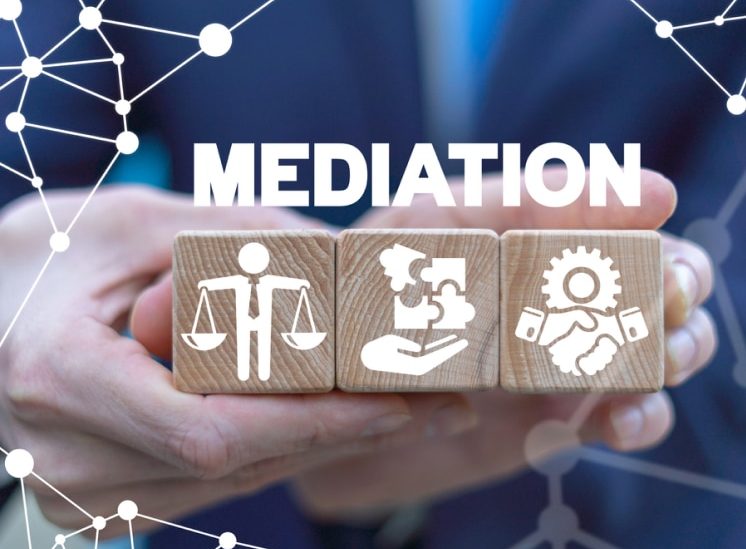
Advantages of Mediation
In general, mediation has many advantages over litigation. These are:
Litigation at court can take up to three years and cost $40,000 to $100,000 or more. Being cross-examined by experts is very unpleasant.
Long-term, mediation participants have more committed agreements and more cooperative relationships going forward, and better outcomes for children’s wellbeing. This is the most child-focused way forward.
Timeframe
We will respond to an email enquiry within 24 hours.
We will contact the second participant within a further 24 hours, preferably first by email and mail, then a follow-up phone call. We will need their contact details.
We will arrange a mediation at a mutually suitable time within 7–14 days (including weekends if necessary to meet timeframes).
We will ask you to provide information in advance, generally by completing information forms.
If there is a Protection Order (ADVO or APVO), we will need an advance copy. If so, it may be done via a shuttle mediation, and we will allocate a longer time.
We will provide information and referrals as appears appropriate and when accepted.

Sometimes a second shorter mediation is needed for difficult situations. Sometimes longer mediations are needed, such as for the following:
Our mediations are mostly from Sydney, Melbourne and Brisbane. We also service all regional areas Australia wide.
A structured negotiation process, assists the parties in identifying issues and concerns and assessing options and negotiating an agreement to resolve the dispute. It is an alternative to a judicial officer imposing a decision on the parties.
Mediation is a form of Alternative Dispute Resolution (ADR), which enables the parties to resolve a dispute outside of court. Also known as Family Dispute Resolution (FDR), mediation is conducted by a trained and registered mediator, otherwise known as a Family Dispute Solution Practitioner (FDRP).
Our mediators are qualified in law and family dispute resolution, with some background in psychology. They are registered with the Attorney General’s department and are qualified to issue 60I certificates.
The mediator assists the parties in reaching an agreement. The mediator’s role is always to remain neutral and cannot provide legal advice to either party in a facilitative mediation. The mediator uses various techniques that facilitate a conversation that is solution-focused and future-focused for all parties involved.
The mediation process is confidential. The mediator cannot share information unless authorised to do so. However, mediators are also mandatory reporters and must report child abuse or threats of harm to the relevant authorities.
It will be private and confidential. Nothing volunteered by you can be shared with the other participant unless you specifically consent. During this time, the mediator will ask you a number of questions and assess the safety and suitability for mediation. Almost all matters are suitable for mediation. It will also help determine the best way to proceed with the mediation and identify the presenting issues and concerns.
If the other party refuses, then you will be notified, and the mediator can issue a 60I certificate. The certificate will state that the other party refused to attend mediation. The complying party may request costs at court. The court will almost always order the parties to attend mediation unless there are good reasons not to, such as serious family violence.
Obtain legal advice. Obtain other professional advice, such as from financial advisors, if appropriate. You should consider:

We work on $400 per hour + GST. Additional time is charged at $400/hour + GST. Generally, each participant pays half each in advance.
We do intake sessions to prepare participants and make sure all property documentation has been obtained and exchanged.
Parenting or family law property mediation is normally allocated four hours (one hour intake and three hours mediation and preparation of agreement) and costs $1,600 + GST.
Parenting and family law property mediation is normally allocated eight hours (two hours for intakes and six hours for mediation and preparation of agreement) and costs $3,200 + GST.
If one party declines invitations to participate, and we issue a 60I certificate, the fee is $200 + GST.
Mediation can still proceed even if there is a protection order in place, such as a Protection Order or Apprehended Domestic Violence Order or Apprehended Personal Violence Order, depending upon the jurisdiction in which it has been made, provided mediation is not prohibited by the order.
It is necessary for us to be provided with a copy of the Protection Order before we can proceed.
If the order says that there is to be no communication between the protected person and the defendant except through a legal representative, then mediation cannot proceed except through lawyers.
Most orders allow mediation. If not, then an application can be made to the originating court for a variation to allow for mediation.
If there is a Protection Order in place, then we will normally conduct the mediation via shuttle so that the participants do not speak directly to each other. And there can be no accusations of misconduct by either participant.
